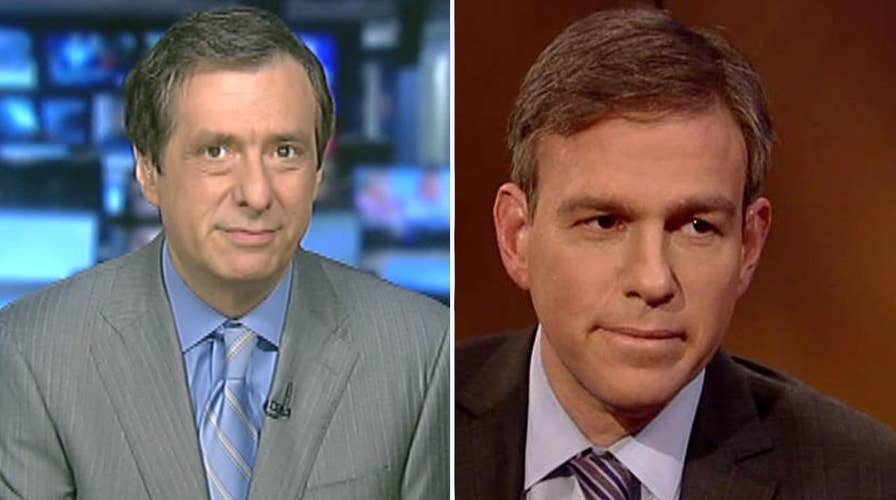Kurtz: Bret Stephens, media lightning rod
'MediaBuzz' host Howard Kurtz weighs in subscribers canceling their New York Times subscriptions over columnist Bret Stephens
The New York Times has triggered an uproar by daring to hire another conservative columnist.
Bret Stephens may have won a Pulitzer Prize writing for the Wall Street Journal, but subscribers flooded the phone lines to cancel their subscriptions after his debut at the Gray Lady.
One thing that may have been drowned out by all the noise is that Stephens is a vehemently anti-Trump voice, which should appeal to readers of the mostly liberal op-ed page. Stephens said during the campaign, for instance, that he wanted Trump to lose by such a wide margin that “the Republican Party, the Republican voters learn their lesson that they cannot nominate a man so manifestly unqualified to be president in any way, shape, or form.”
The Times has two moderately conservative intellectuals on its op-ed page, David Brooks and Ross Douthat, along with a slew of liberals from Paul Krugman to Nick Kristof to Maureen Dowd to Gail Collins, and the reliably liberal and anti-Trump editorial page.
Editorial Page Editor James Bennet says there “are many shades of conservatism and many shades of liberalism,” and that the paper is trying to “capture a wide range” of views, according to the Huffington Post.
That seems like a worthy goal to me.
What lit the fuse was Stephens’ first column, on climate change, in which he poked at the liberal view:
“The science is settled. The threat is clear. Isn’t this one instance, at least, where 100 percent of the truth resides on one side of the argument?
“Well, not entirely. As Andrew Revkin wrote last year about his storied career as an environmental reporter at The Times, ‘I saw a widening gap between what scientists had been learning about global warming and what advocates were claiming as they pushed ever harder to pass climate legislation.’” (The Times did run a correction on his citation of one study.)
But look at what Stephens adds:
“None of this is to deny climate change or the possible severity of its consequences. But ordinary citizens also have a right to be skeptical of an overweening scientism. They know — as all environmentalists should — that history is littered with the human wreckage of scientific errors married to political power.”
I’ll leave it to others to debate the details, given that there is a strong scientific consensus in favor of man-made global warming. But with liberal sites denouncing Stephens as a climate change denier, my reading is that he’s arguing for a skeptical approach to scientific questions and everything else.
More striking to me is the behavior of those who are canceling their subscriptions. That suggests to me a fundamental intolerance of opposing views, not unlike those who are shutting down conservative speakers at Berkeley and other campuses.
The Times hires one columnist that these true believers disdain and they’re dumping the paper, giving up the breadth of its reporting as well as the rest of the opinion pages? Why not just refuse to read or click on the Stephens columns if you detest his arguments?
Stephens tweeted the other day: “After 20 months of being harangued by bullying Trump supporters, I'm reminded that the nasty left is no different. Perhaps worse.”
The reaction to his column may have proven his point.













































